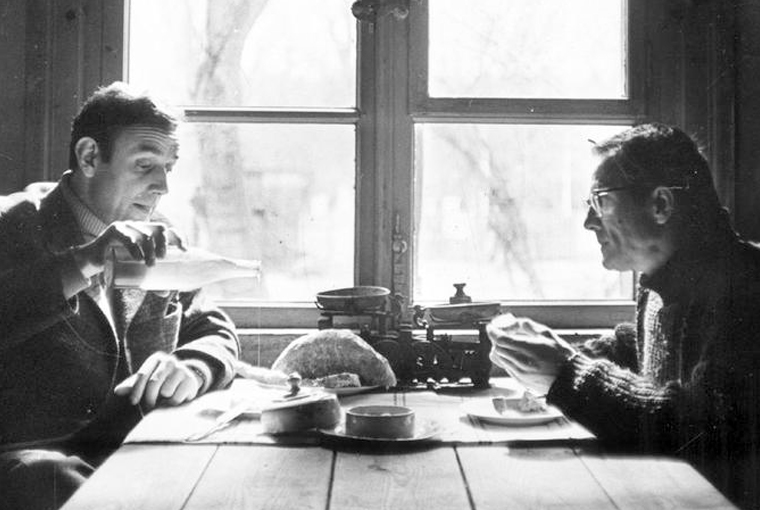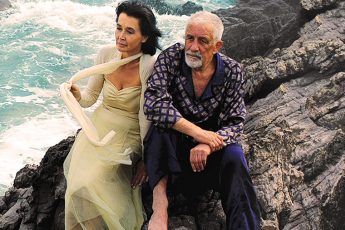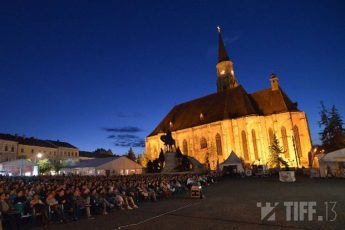
Romanian Film Promotion (APFR) has launched a campaign together with the Transilvania International Film Festival (TIFF) to prevent the disappearance of movie theatres in Romania. The fact that both APFR and TIFF are headed by Romanian Tudor Giurgiu, who is also a succesful director and producer, and that less than 30 regular cinemas are currently open to the public in Romania, is a hurtful reminder that Romania’s film world is small. Smaller than the success of Romanian New Waves across A-festivals suggests, and smaller than that of any country with 20 million inhabitants in the EU should be. The figures are all the more troubling because there were supposedly 450 cinemas when Communsim ended, which gradually closed due to a lack of state support and/or commercial appeal. Not all is due to a lack of means, however: to reverse the trend, TIFF organized a workshop to help initiatives gain funds for restoring cinema halls (some success stories from both Croatia and Poland were mentioned, too). Additionally, the festival featured films revolving around the topic, and a fundraising campaign to turn a historic film warehouse in Cluj into a film museum.
The initiative is walking a thin line: on the one hand, it should approach politicians to gain their support, on the other, it must guarantee that the state does not withdraw itself from its responsibility. In Romania, like most, if not all Eastern European countries, there is a disconcern for “high” culture that cannot solely be reduced to the fact that people have had no chance to try it out: the West is not the only region in the world where blockbusters do better than arthouse films. Still, Eastern Europe is special in that no satisfiable civil society has emerged, and that concerns are disproportionately fixed on economic matters. One may safely conjecture that there are many people who opposed the disappearance of cinema halls from their towns and cities, yet cinema has so far failed to unite society in formulating demands (culture, like ecology, is a topic at best figured for rhetoric purposes by most parties in the post-Communist bloc). Giurgiu and his team seem to know this: TIFF has begun featuring two new strands of Romania cinema that could stir support for their cause, which ultimately seems to be to promote cinema in Romania (probably, making money does not harm the motivation per se). Firstly, entertainment cinema, which is most notably represented with such productions as Love Building and #Selfie, which were both made with all the ingredients of a successful entertainment film (e.g. a straightforward plot with romance, drama and comedy). Under the second strand fall political films, notably Bucharest, Where Are You?, a documentary about the University Square Protests in Bucharest in 2012. Perhaps, it is inevitable that non-commercial cinema will to some degree be relegated to film festivals, but France is a prime example that this need not be the sole refuge for good films. And to those wo do not share the privilege of being able to travel to Cluj, Karlovy Vary, or Krakow every year, that should be a sign of hope. Salvați Marele Ecran!
EEFB attended the Transilvania International Film Festival (May 30-June 8th) in Cluj, covering all Eastern European competition films and conducting several interviews. At TIFF, we also met Polish helmer Krzysztof Zanussi, to whom we dedicate our current issue. In the exclusive interview, Zanussi speaks about Polish cinema, truth, philosophy, and politics. Moritz Pfeifer saw Illumination, situating it in the context of films that depict science and scientists. Julia Zelman analysed The Structure of Crystals, his debut feature, in the light of its two male protagonists, while Jack Page illustrates Zanussi’s approach to cinema through Life as a Fatal Sexually Transmitted Disease from the year 2000. Finally, we saw Persona Non Grata, in which a diplomat is disabused of his utopian world view.
In our June issue, you will find another analysis of Polish historical films in the light of Aftermath, as well as a review of We Film the People!, a documentary that revolves around the filmmakers behind the golden age of Polish film, among others Zanussi.
Konstanty Kuzma & Moritz Pfeifer
Editors




Leave a Comment